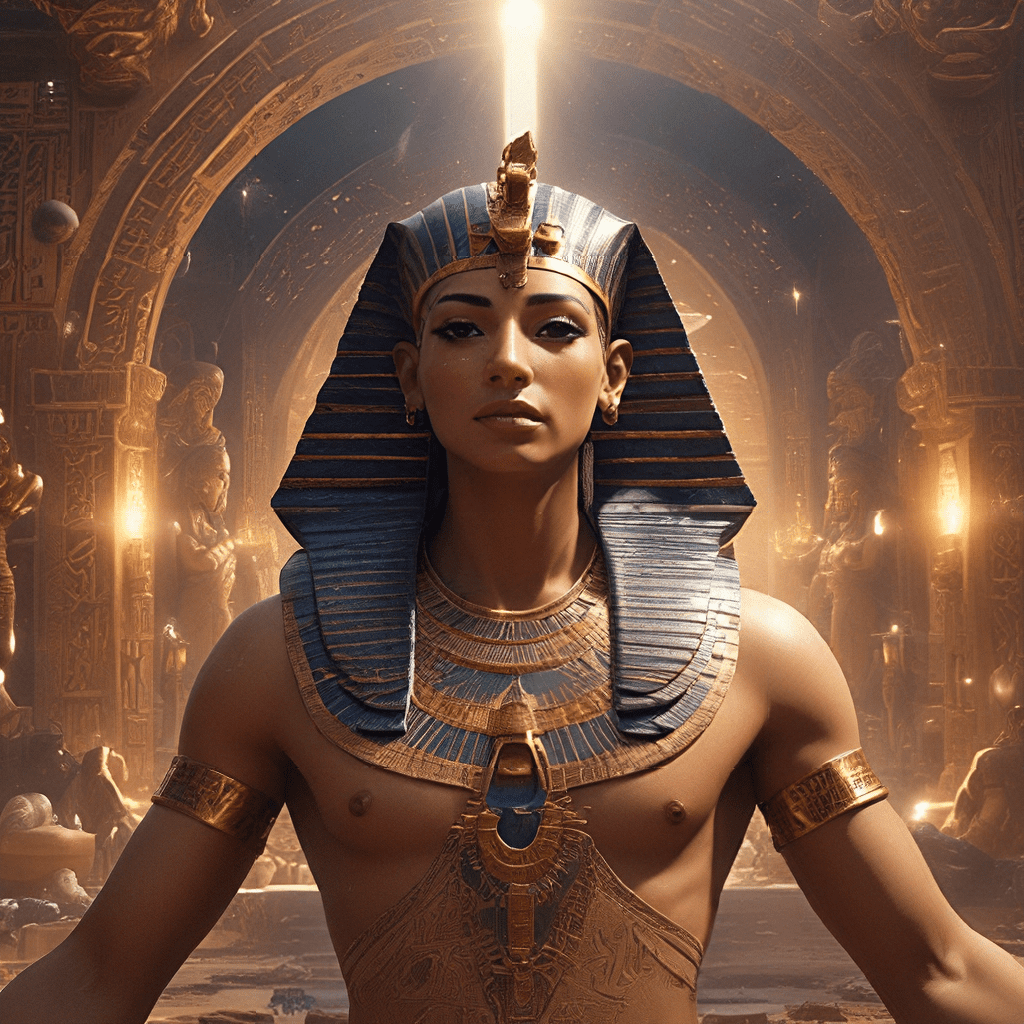The Breath of Creation: The Power of the Divine in the Egyptian Cosmos
In ancient Egypt, the power of creation was closely intertwined with the breath of the gods. From the primordial waters to the daily sunrise, the divine breath was considered the source of life, order, and existence itself. This article explores how the breath of creation played a vital role in Egyptian mythology and cosmology, shaping their understanding of the universe and their place within it.
1. The Cosmic Egg: From Chaos to Creation
The Egyptian creation myth begins with the concept of “Nun,” the primordial waters of chaos. From these swirling waters, the self-created god Amun-Ra emerged, embodying the first spark of existence. He was often depicted as a being with a human body and the head of a ram, representing strength and leadership.
In the creation myth, Amun-Ra’s breath, a powerful force known as “shu,” separated the earth (Geb) from the sky (Nut). This act brought order and structure to the chaotic waters, symbolizing the transition from nothingness to existence. The creation myth highlights the vital role of the divine breath in establishing the universe and its fundamental elements.
2. The Breath of Life: “Ma’at” and the Divine Breath
“Ma’at” was a crucial concept in Egyptian thought, representing cosmic order, justice, and balance. In the myth of creation, “Ma’at” was also associated with the divine breath. The vital breath, known as “ka,” was considered an essential aspect of life, flowing through all living beings.
The divine breath “shu” played a critical role in maintaining this cosmic order. By separating the sky and earth, “shu” ensured stability and balance, crucial for the existence of life. This separation allowed for the emergence of the other elements of the universe, including the sun, moon, and stars.
3. The Divine Spark: The Sun God and the Breath of Creation
Ra, the sun god, was considered the embodiment of the life-giving force in the Egyptian cosmos. His daily journey across the sky, from sunrise to sunset, symbolized the continuous cycle of creation and renewal. Ra’s light and heat provided sustenance to all life on earth, making him a central figure in Egyptian mythology and worship.
Ra’s breath was considered the catalyst for creation. Each morning, as he rose in the east, his breath brought forth the world anew. The sun god’s breath was seen as the source of life and energy, driving the natural world and sustaining its existence.
4. The Power of Words: The Divine Word in Egyptian Creation Myths
In ancient Egyptian beliefs, words held significant power. The “word of power,” known as “heka,” was believed to have the ability to create and transform the world. This belief is reflected in creation myths, where the gods used their words to bring forth existence.
The creation of the world through utterance and decree emphasized the power of the divine mind and the role of language in shaping reality. This concept extended beyond creation myths, influencing Egyptian rituals and magic.
5. The Cosmic Cycle: Death, Rebirth, and the Breath of the Divine
Ancient Egyptians believed in a cyclical view of existence, where death was not an end but a transition into the afterlife. They envisioned a journey to the underworld, where the deceased would be judged and their souls weighed against the feather of Ma’at, determining their fate.
The breath of the gods was also central to the afterlife. It was believed that the “ka,” the vital breath, continued to exist after death and could be reborn in the afterlife. The breath of life became a symbol of immortality and the possibility of continuing existence beyond the physical realm.
6. The Breath of the King: Divine Authority and the Legacy of Pharaohs
The pharaoh, the ruler of ancient Egypt, was considered the embodiment of the divine on earth. He was seen as a link between the gods and the people, responsible for maintaining cosmic order. The pharaoh’s “ka,” his vital breath, was believed to be connected to the divine breath, granting him divine authority and power.
The significance of the pharaoh’s breath extended beyond his reign. It was believed that his breath, and therefore his “ka,” could ensure the continued existence of “Ma’at” and the prosperity of the kingdom. This connection between the pharaoh’s breath and cosmic order contributed to the importance placed on the pharaoh’s legacy and his role in maintaining the balance of the universe.




